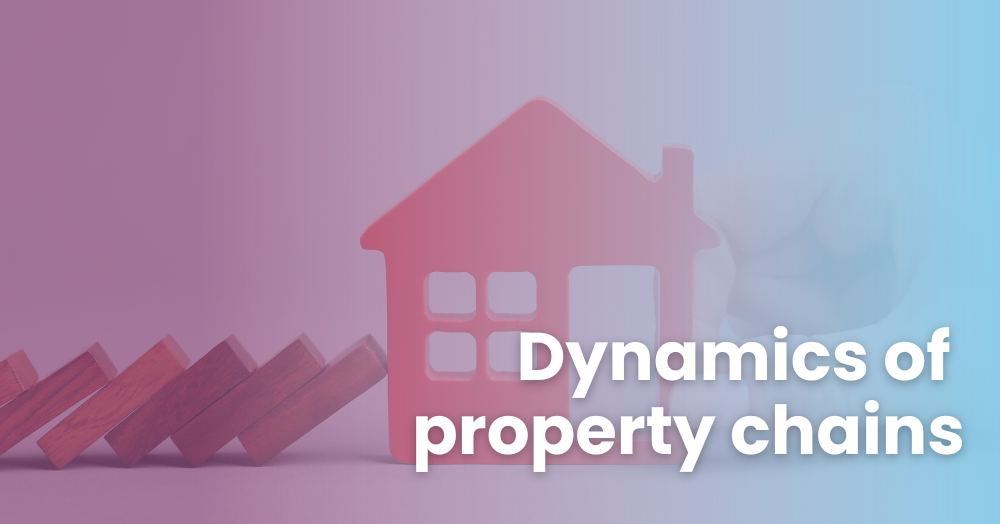
Navigating the property market involves a complex tapestry of transactions, negotiations, and legal formalities. For both buyers and sellers, understanding the dynamics of property chains is pivotal for a seamless experience.
What Exactly is a Property Chain?
In simple terms, a property chain is a series of interconnected buyers and sellers, all aiming to relocate. Each participant is a vital link in this chain, stretching from the initial buyer to the final seller. The success of each move hinges on the success of the other links in the chain.
Chains form when buyers and sellers engage in multiple, interdependent property transactions. If you’re selling your home to finance your new purchase, you’re already part of a property chain. This chain can lengthen when your buyer is also selling their property, setting off a domino effect of transactions.
The Anatomy of a Property Chain
Navigating a property chain can be intricate, involving various parties and adding layers of complexity to the buying and selling process. Here’s a breakdown:
- Kick-Off: A homeowner puts their property on the market while simultaneously looking for a new home.
- Offer & Acceptance: A buyer’s offer is accepted by the seller but is “subject to contract,” indicating a verbal agreement without legal obligation.
- The Hunt: The seller, now also a buyer, seeks out their next residence, initiating a new transaction.
- Chain Expansion: If the seller’s new purchase depends on selling their current home, the chain grows, getting more complex with each added link.
- Legalities & Inspections: Each transaction requires legal processes like conveyancing and property surveys. Delays in any step can risk derailing the whole chain.
- Finalization: Once all parties are set and legalities sorted, transactions conclude and properties change hands.
What’s a Chain-Free Property?
Chain-free refers to a transaction where the seller doesn’t need to sell another property to move forward, making the process quicker and less convoluted for buyers.
What Does ‘No Upward Chain’ Mean?
This term signifies that your seller has no plans to buy another property, eliminating one potential delay in your own purchase.
Why Do Property Chains Break?
The more extended the chain, the higher the risk of it collapsing. Just one participant backing out can stall every transaction in the chain. Common culprits include:
- A change of heart or circumstances.
- Mortgage approval difficulties.
- Unexpected issues revealed in property surveys.
- Legal delays.
What if the Chain Breaks?
Unpredictable as they are, chain collapses can still be managed. If you find yourself in this scenario:
- Immediately consult your estate agent, conveyancing solicitor, and mortgage advisor to find another suitable buyer.
- Consider interim solutions like renting or staying with friends or family.
- Keep communication lines open and stay calm.
- Explore options like bridging loans through a mortgage broker.
Considering a property transaction? Reach out to us for expert guidance on your next move.


